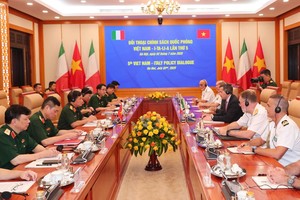Russia has serious questions over the aims of fresh US missile defence plans for Europe, the foreign ministry said Friday, in Moscow's strongest expression of concern yet over the new initiative.

"We still have serious questions regarding the true purpose of the US missile system," a ministry spokesman, Andrei Nesterenko, told reporters in televised remarks.
"Therefore we will continue to consistently oppose any dubious unilateral actions in relation to the missile defence that can negatively affect international security."
His comments were Russia's strongest statement of concern after Romania said it would hold talks with Washington on hosting US missile interceptors and Bulgaria showed an interest in taking part in a US missile shield.
Until now, the foreign ministry had only said it was concerned and was analyzing the issue.
But Nesterenko said: "We are again becoming witnesses to a hasty anti-missile arrangement for Europe when the fragile architecture of European security essentially becomes hostage to imaginary missile threats that are defined unilaterally."
Nesterenko expressed regret that Moscow was learning about the new US missile plans for Romania from media reports rather than directly from Washington and Bucharest, noting such practice ran counter to Russia's idea of "equal partnership".
US President Barack Obama's decision last year to shelve an initiative by his predecessor George W. Bush to place an anti-missile radar facility in the Czech Republic and interceptors in Poland won a warm response from Russia.
But the apparent involvement of former Communist states Bulgaria and Romania in its replacement plan has already irked Russian officials.
Earlier this month the Russian Defence Minister Anatoly Serdyukov warned Moscow could revive plans to base missiles in its western exclave of Kaliningrad on NATO's doorstep if the threat warranted such a move.
The growing dispute over the new missile defence plan is the latest issue to mar the reset in ties promoted by Obama which has already been hit by delays in agreeing a new nuclear disarmament treaty.








)















